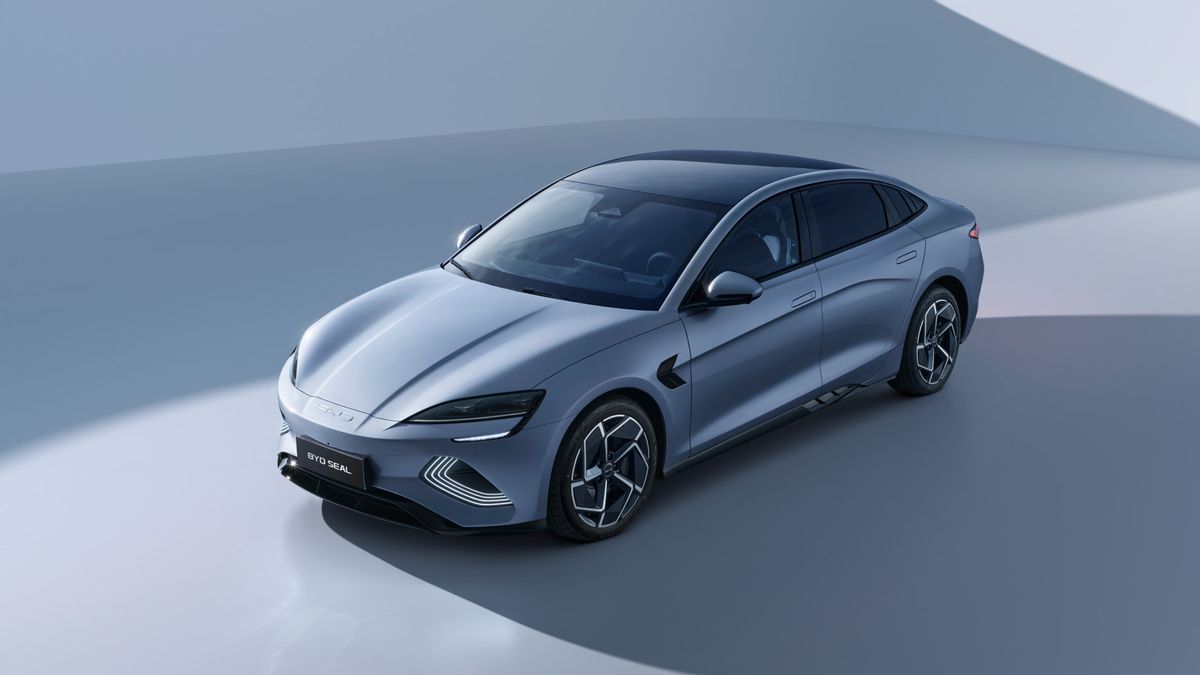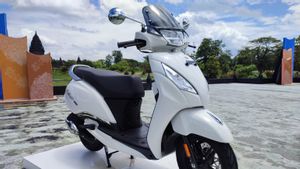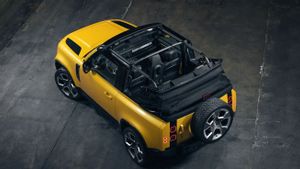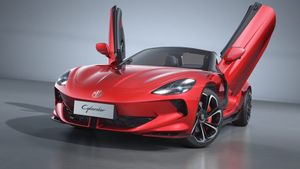JAKARTA - Germany's automotive industry, which is the largest in Europe and absorbs about 800,000 workers, has been facing difficult times in the last five years.
According to a report by The Financial Times, January 21, the transition to electric cars (EVs) has added to the difficulties for the automotive industry in Germany, which has been pinched due to the slowdown in the economy, inflation, and rising interest rates.
The new car model is no longer marketed based on engine capacity, but is a striking technology shift from German specialization to a field where the country's automotive industry is known to be slow.
One of the biggest challenges facing the German auto industry is the rapid progress of the automotive industry between China and the United States with EVs. Chinese companies, such as BYD and SAIC, to Tesla from the US, have invested heavily in EVs and their technology.
Now, companies such as BMW, Mercedes-Benz, and Volkswagen are trying to increase sales of electric cars (EVs) while a number of Chinese start-ups have announced the launch of advanced electric models in Europe.
SEE ALSO:
Meanwhile, on the other hand, German automotive suppliers are also facing increasingly fierce competition from Chinese suppliers. Chinese suppliers have an advantage in terms of costs, as they have access to cheaper labor and more affordable raw materials.
In three years towards 2023, the number of major suppliers in Germany reportedly began to reduce the number of employees with more than 30,000 jobs lost in the same period.
Some of the largest automotive suppliers such as Schaeffler and Continental, have in recent years warned of potential cuts to tens of thousands of jobs, due to increased investment in future technologies.
Bosch recently announced a 1,200 cut in work, while ZF Friedrichshafen said they were reviewing its operations and in the worst-case scenario, could cut to 12,000 jobs in the next six years.
Most of the cost pressures currently faced by suppliers come from the need to invest in electric cars while maintaining market share in the existing internal combustion engine industry.
According to a Strategy& consultant report owned by PwC, in 2022 alone German suppliers spent 16 billion euros for research and development, which is a record expenditure.
To note, according to reports by LAzard and consultant Roland Berger margin of profit for conventional automotive suppliers globally, the segment in which German companies dominate has shrunk by an average of three percent in five years through 2022.
German suppliers are said to still hold 25 percent of the global market share, but that figure has fallen three percentage points since 2019, according to a Strategy& report, suggesting that most have disappeared to competitors from Asia.
The English, Chinese, Japanese, Arabic, and French versions are automatically generated by the AI. So there may still be inaccuracies in translating, please always see Indonesian as our main language. (system supported by DigitalSiber.id)
















